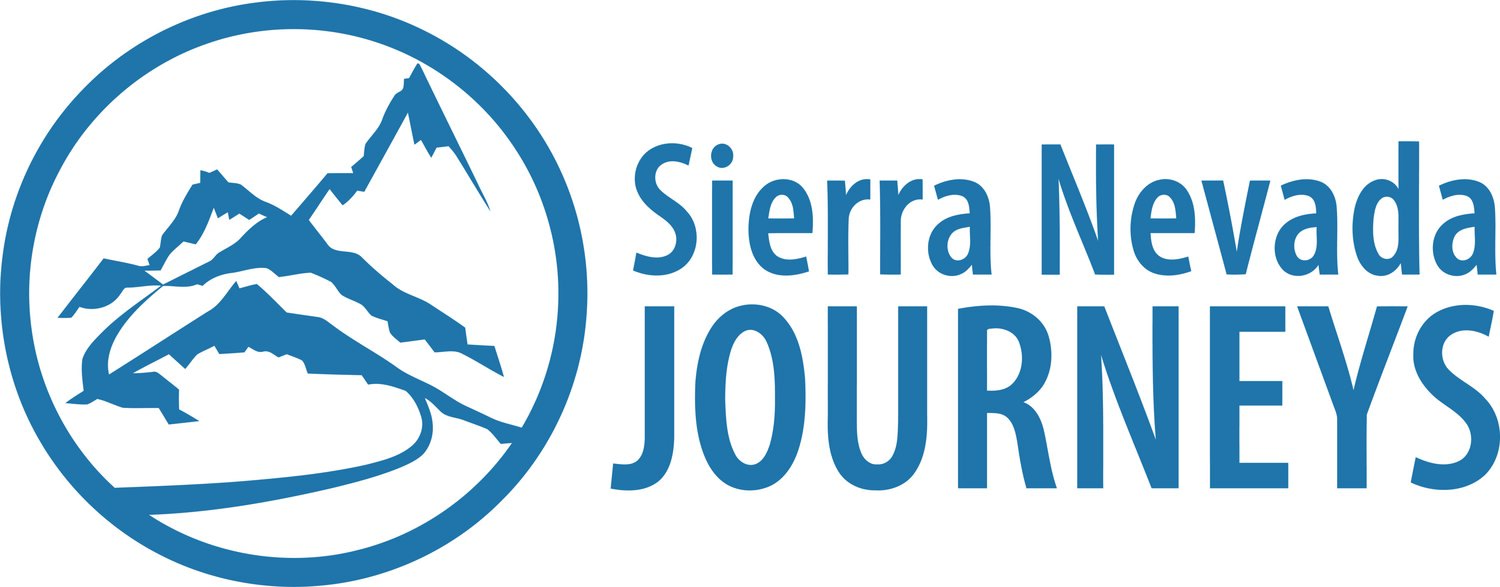Youth of all ages benefit from camp. “For years, campers' parents have reported that when their children return home from camp they are more caring, understand the importance of giving, are more equipped to stand up for what they know is right, and are willing to be more responsible,” (American Camp Association, n.d.). However, camps that serve a vast age range (ages 7 – 17) must recognize the developmental differences of these ages and plan their programming accordingly.
Like most camps, Sierra Nevada Journeys groups campers by age when determining cabin assignments. This helps campers achieve the skills stated above.
Become more caring.
Children of similar ages are often going through similar experiences at home, school and developmentally. These similarities help spark sharing, caring and empathy among campers in the cabin group. They can also learn more strategies from their peers on how to celebrate successes and cope with challenges, which makes them more caring individuals.
Understand the importance of giving.
“Giving” means different things to different ages. For younger campers, it may mean actually sharing a stuffed animal or a pair of scissors with someone in their group. For older campers, it may mean listening to a friend in need or stepping back in order to let someone else shine (without being prompted to do so by an adult).
More equipped to stand up for what they know is right.
Younger campers are very dependent on their family to establish ground rules that determine how they view “right vs. wrong”. As they grow, they seek some adult guidance until eventually they spend more time with friends and this influences their values. When campers are grouped with their peers, staff can offer more effective support and strategies.
Willing to be more responsible.
It can be a lot of responsibility for an 8-year-old to get all the things they need together to go take a shower. Counselors can assist by having posters on the cabin wall indicating what they need to bring and giving a friendly remind. As the week goes on, the counselors might challenge the campers to do this on their own without reminders, hence increasing their responsibility. A 14-year-old is more likely to be able to gather their belongings to head to the shower with little reminders / instruction. This would not be a challenge for them. With older campers, counselors can create age appropriate challenges, like completing a service project that will benefit the camp and future campers.
At SNJ, the campers travel to most activities with their cabin groups. The staff is trained to accommodate differences in skill level at each activity, but we place high value in our campers spending most of their day with their peers. However, we also value being a large community so all campers do interact throughout the week: at meal times, large group activities and evening programs. It is great to watch a group of campers ranging in age from 8 – 17 go out to complete a counselor hunt and rally around their team when we gather together to share results. Those campers have a shared experience and are likely to be found sitting together at meals or signing up for the same “free choice” block to see each other again.
It is very important that our staff understand age group characteristics in terms of the camper’s cognitive, social, emotional and physical development and thus this is a key component of staff training. We also discuss how their independence develops with age as this impacts the relationships they have with the adults in their lives, including camp counselors. Although it is essential that staff understand this and use it to develop an appropriate curriculum, it is most important that they are always thinking about the uniqueness of every child. Meeting each child where they are, despite his/her age, and setting them up to be successful and challenged is the ultimate goal of the camp experience.
References
American Camp Association. (n.d.) Benefits of camp. Retrieved from http://www.acacamps.org/campers-families/because-camp/benefits-camp
Coutellier, C. (2007). Camp is for the camper. Martinsville, IN; American Camp Association.

